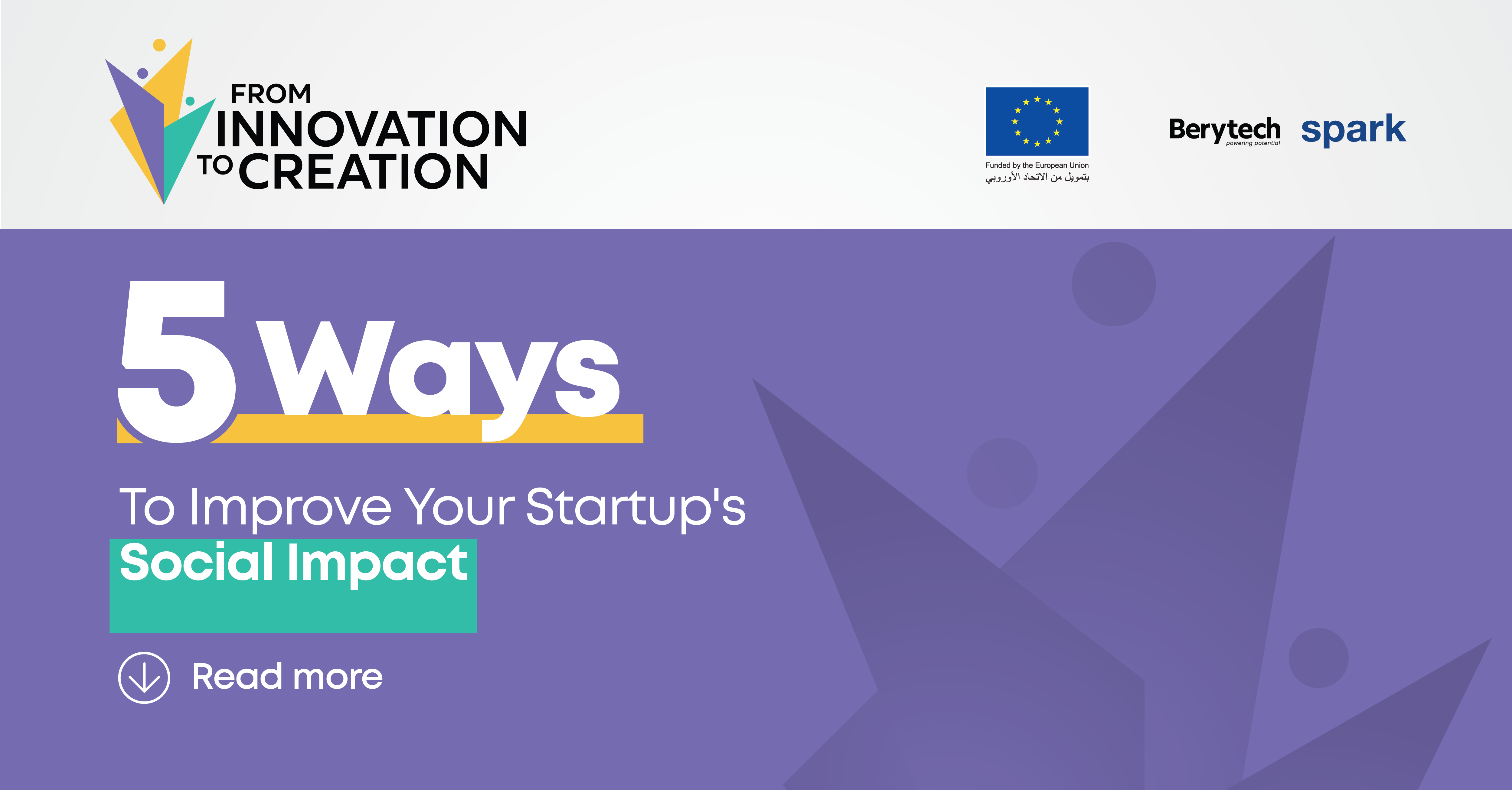In recent years, the term ‘impact startup’ has become popular in business. An impact startup focuses on positively impacting society or the environment rather than simply making a profit. Impact startups are often mission-driven and use business as a force for good. Several factors make an impact startup successful. In the business world, the term startup refers to innovative companies with impactful ideas that entrepreneurs create to benefit the business sector and serve a cause. Today, with international policies being made, a startup should positively impact the world by making a social impact.
With the rising relevance of social startups, here are five ways to increase your startup’s social impact, paired with valuable tips from industry experts.
1. Work on a Scaled Business Model
A business model that is sustainable and scalable would contribute to the main component of any startup, which is trust. A startup’s business model must be consistently replicated and scaled up to make a lasting impact. Identifying the products alongside the services the startup plans to work on, targeting the markets, and any anticipated expenses are all discussed in this step. A transparent business model helps developing companies attract investors, recruit talent, and motivate management and staff. Established startups are recommended to update their business model regularly, and this step helps anticipate trends and challenges. This step builds trust internally and allows investors to evaluate companies that interest them and employees to understand the future of a company they may aspire to join.
Nour Sardouk, Ph.D. candidate at Conservatoire National des Arts et Métiers (Cnam) of Paris expresses, “Any startup should compel a social narrative as a fundamental step. By clearly addressing the problem that the startup aims to tackle and understanding the social issue that the problem is creating would impact in creating a solution.”
2. Invest in Sustainable Assets
Some startups require working space, an investment that requires building assets for employees and customers. Having an energy-efficient startup ensures sustainability and reduces energy consumption. Moreover, its economic benefits may result in low energy bills per business. Investing in human capital development through activities and engaging events is another asset that directly affects cognitive and emotional development, resulting in better education and quality of life. Human capital contributes to knowledge alongside experience and abilities that individuals bring to a workspace, and managing it effectively contributes to forming a valuable asset for any startup.
On this point, Nour Sardouk adds “Integrating a social impact into brand identity is a strategic move that acknowledges commitment to social responsibility. By incorporating visual messages, logos, and schemes, you would always remind the employees and visitors about the values and mission of a startup. Social media is another asset that requires investment to pay back in the future. This as an opportunity to showcase your products or services alongside the positive change your startup is driving.”
3. The Team Building Process
An impact startup must have a team of passionate and committed individuals dedicated to making the company successful. A solid startup team is essential for the success of any business venture. They can work together effectively to achieve the desired goals. The most crucial factor for creating a successful startup team is having individuals with complementary skills. Each individual should bring something unique, whether it’s knowledge or experience.
The director of Fouad Makhzoumi Innovation Center at the Lebanese American University LAU, Annie Seferian, shares her insights by saying, “The business’ success is tied to attitude. Everyday ethics within the team and knowing the values would help achieve more significant outcomes. Fostering collaboration alongside innovation and embracing equity are all components that enhance the impact on the social levels of every startup.”
4. Creating Shared Value via Public-Private Community Partnerships
The social impact thrives when efforts from startups, the government, and the community connect. This requires more attention to community involvement, reducing inclusivity. Social entrepreneurs recognize the importance of active participation from all stakeholders to create sustainable solutions. Creating shared value alongside solutions involves maximizing economic growth alongside social progress. Startups must focus on community needs, developing the framework to improve mutual and social gain, and that happens through contributing to the wealth of knowledge and expertise by sharing created value.
Sarah Makhoul, the holder of a Ph.D. in Business Science, shares inspiring words with Berytech, targeting startup founders and encouraging them to focus on their pursuits because that would make any dream a reality. She expresses, “Positivity at work, finding joy in every step, and focusing on the goals by reaching out to the people with a clear roadmap ensures clarity to the journey. A clear map leads to clear roads, paving the way to achieving all the aspirations.”
5. Stay Updated and Adopt Technology
In a time where technology plays a transformative role, social impact bears the potential of technology adoption. A startup should recognize the significance of technology in helping find solutions and use it wisely to improve social impact. Empowering work colleagues and business owners to leverage technology for self-sufficiency, employability, and opportunity creation is done through research, alongside taking risks and trusting the process.
Sanaa Hajj, who holds a Ph.D. in management sciences, discusses adopting a visionary social mission incorporating sustainability initiatives that positively affect human and environmental causes. She expresses, “Try to engage community members and stakeholders with events to share updates alongside knowledge. This leads to a successful impact on both the social and business levels.”
Conclusion
In a generation where the role of entrepreneurship extends beyond financial growth, identifying its vital contribution to societal development is critical. As the younger generation aims for more dynamic and creative roles, the importance of small businesses and startups in shaping economies and career paths becomes obvious. Entrepreneurship with a social impact arises as a transformative addition challenging standard profit-driven norms. In fact, nowadays, abiding with the social implications opens new opportunities to new markets and investors. While making money is essential for growth, the best impact startups are driven by a passion to make a favorable difference in the earth. Having a scaled business model, investing in sustainable assets, building a team spirit, creating partnerships with public sectors, and using technology are all examples that reflect the theme of social impact and how to turn it into something tangible.
About the program: Berytech implementing the ‘From Innovation to Creation Program.’
The “From Innovation to Creation Program” aims to enhance the capabilities of innovation stakeholders in Lebanon. Funded by the European Union and implemented by Berytech in partnership with Spark, it actively engages in social and green entrepreneurship. This program aims to boost the capabilities of established and emerging innovation support organizations, such as tech hubs, accelerators, incubators, university entrepreneurship centers, and organizations, by supplying them with the needed knowledge and means to sustain the development and growth of social and green startups.
Berytech’s Role in this program aims to implement various activities for selected innovation stakeholders through training in social and green entrepreneurship by doing boot camps to create an environmental impact. This will enable these organizations to enhance their services for startups, making them more oriented towards impact.










